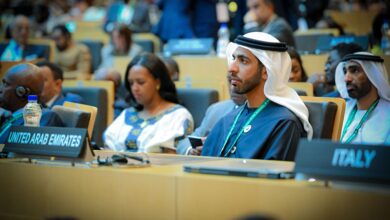Integrity, combating corruption vital to national development

The Time Kuwait Report
As Kuwait moves forward at an accelerated pace to realize the country’s ambitious Vision 2035 development plan, combating corruption has evolved from being a mere rhetorical exercise to an urgent national imperative. Fighting corruption and ensuring integrity in the public domain is no longer just an issue of administrative and law enforcement concern, but intersects with economic stability, national security, and good governance, shaping a country’s future and its international standing.
Kuwait has made notable strides in this arena, building robust oversight institutions that underscore the critical role of transparency in sustainable development, with the Kuwait Anti-Corruption Authority (Nazaha) being at the forefront in safeguarding public funds and enforcing accountability.
Recent months have seen the Authority refer over 70 individuals, who are subject to financial disclosure rules, to the Public Prosecution for failing to meet submission deadlines, alongside 30 government employees. Senior officials and supervisors across ministries, including Public Works, have also faced scrutiny for alleged forgery, misuse of funds, and inaccurate financial reporting.
These actions demonstrate Nazaha’s commitment to a proactive approach to corruption, transforming the fight against corruption from reactive enforcement into a structured, preventive national policy.
By fostering early monitoring and institutional oversight, Kuwait is moving toward a sustainable system where compliance and integrity are integral to governance. International recognition of these efforts is evident, as Kuwait improved its ranking on Transparency International’s Corruption Perceptions Index from 77th in 2021 to 72nd in 2024, reflecting growing institutional effectiveness and heightened awareness of transparency.
Economically, anti-corruption measures are essential for enhancing Kuwait’s business climate and attracting foreign investment. Investors increasingly consider the integrity of government procedures, the stability of financial legislation, and the efficiency of public spending before committing resources. Reducing administrative inefficiencies and ensuring proper allocation of public funds strengthens growth, enhances citizen services, and builds confidence in state institutions.
Nazaha’s innovative ‘Performance’ project embodies this proactive approach. The project implements a phased annual accreditation system across four levels, focusing on governance, awareness, training, and ethical conduct. Public sector entities receive guidance, training, and resources to meet prescribed standards, promoting a preventive administrative culture. Currently, 27 government entities participate in the project, benefiting over 66,000 employees through 280 awareness and training activities, achieving a 25.8 percent increase in staff awareness within a year.
Combating corruption in Kuwait is no longer optional—it is foundational to public trust, economic growth, and sustainable development. By consolidating institutional efforts, enhancing legal frameworks, and embedding integrity into government operations, Kuwait is strengthening both national governance and its international credibility, setting a model for accountability, transparency, and responsible administration.












